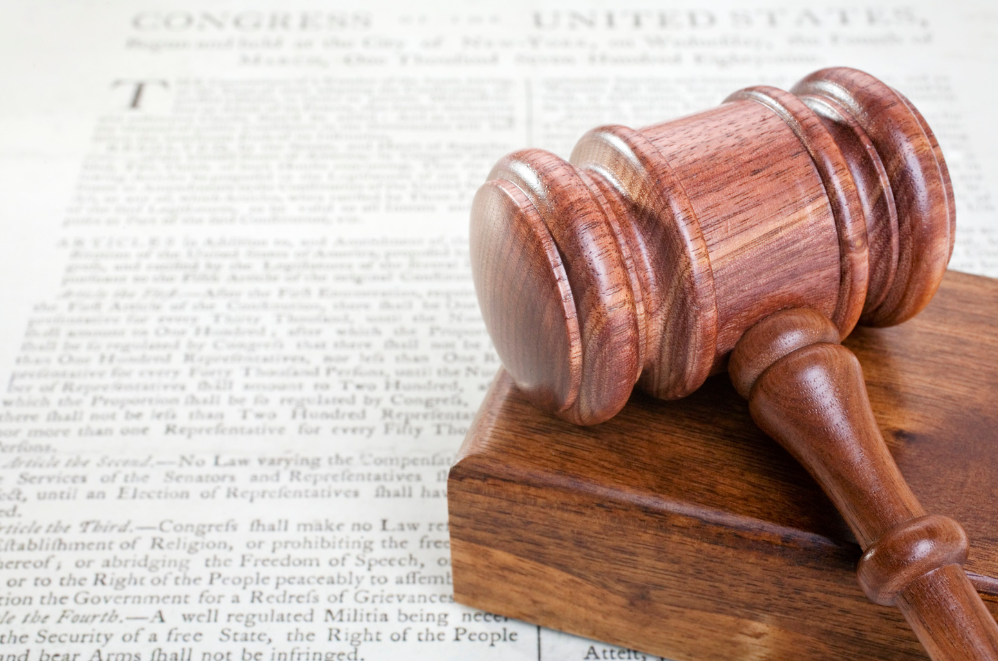Understanding the 8th Amendment: Protecting Against Cruel and Unusual Punishment

The 8th Amendment to the United States Constitution is a cornerstone of individual rights, ensuring protection from cruel and unusual punishment. It is part of the Bill of Rights, ratified in 1791, and has served as a critical safeguard against inhumane treatment by the government. Over time, the interpretation of this Amendment has evolved in response to changing societal values and legal precedents. This blog will explore the history, key components, and modern-day applications of the 8th Amendment.
What Is the 8th Amendment?
- The 8th Amendment to the United States Constitution prohibits excessive bail, excessive fines, and cruel and unusual punishments.
- It is a cornerstone of the Bill of Rights, protecting individuals from government overreach in criminal justice and punishment.
- Learn more about its historical context and text at the National Constitution Center.
Excessive Bail and Its Limitations
- The clause against excessive bail ensures that bail amounts are not set so high that they effectively deny a person’s release before trial.
- Courts must balance the seriousness of the offense, the defendant’s flight risk, and public safety when determining bail.
- Excessive bail rulings have been challenged in landmark cases like Stack v. Boyle (1951).
Excessive Fines and Property Forfeiture
- The excessive fines clause protects individuals from disproportionate financial penalties imposed by the government.
- In Timbs v. Indiana (2019), the Supreme Court ruled that the excessive fines clause applies to the states, addressing civil asset forfeiture abuse.
- This protection ensures fines align with the severity of the offense, preventing economic exploitation by the state.
- Read more about Timbs v. Indiana at Oyez.
Cruel and Unusual Punishments
- The prohibition against cruel and unusual punishment ensures that penalties for crimes are humane and proportionate.
- The interpretation of this clause evolves, reflecting changing societal norms and moral standards.
- Landmark cases like Furman v. Georgia (1972) and Roper v. Simmons (2005) have shaped the modern understanding of this protection.
Capital Punishment and the 8th Amendment
- The death penalty remains one of the most debated aspects of the 8th Amendment.
- While capital punishment is not inherently unconstitutional, the Supreme Court has ruled on methods of execution and eligibility, ensuring fairness and humanity.
- Cases such as Gregg v. Georgia (1976) reaffirmed the constitutionality of the death penalty under regulated systems.
- Explore more about capital punishment and its legal standards at the Death Penalty Information Center.
Prison Conditions and Inmate Rights
- The 8th Amendment extends to protecting inmates from inhumane treatment, such as overcrowding, lack of medical care, and abuse by prison staff.
- Courts have ruled that prison conditions must meet basic standards of decency and health to comply with the amendment.
Evolving Standards of Decency
- The interpretation of cruel and unusual punishment has shifted with societal values, reflecting the concept of “evolving standards of decency.”
- This principle allows courts to consider contemporary norms when assessing the constitutionality of punishments.
- Learn more about this evolving interpretation from the Legal Information Institute.
Juvenile Justice and the 8th Amendment
- The Supreme Court has ruled that the 8th Amendment applies differently to juveniles, emphasizing rehabilitation over punishment.
- In Roper v. Simmons (2005), the Court prohibited the death penalty for crimes committed by juveniles, citing developmental differences and moral standards.
Why the 8th Amendment Remains Essential
- The 8th Amendment ensures that the criminal justice system operates fairly and humanely, safeguarding individuals from government abuse.
- Its principles uphold the moral fabric of society by demanding proportionality and compassion in legal penalties.
For more information or legal assistance regarding the 8th Amendment, contact The Lawyers Corner. Our experienced team is here to provide insights, guidance, and representation to protect your constitutional rights.

Related Items:





